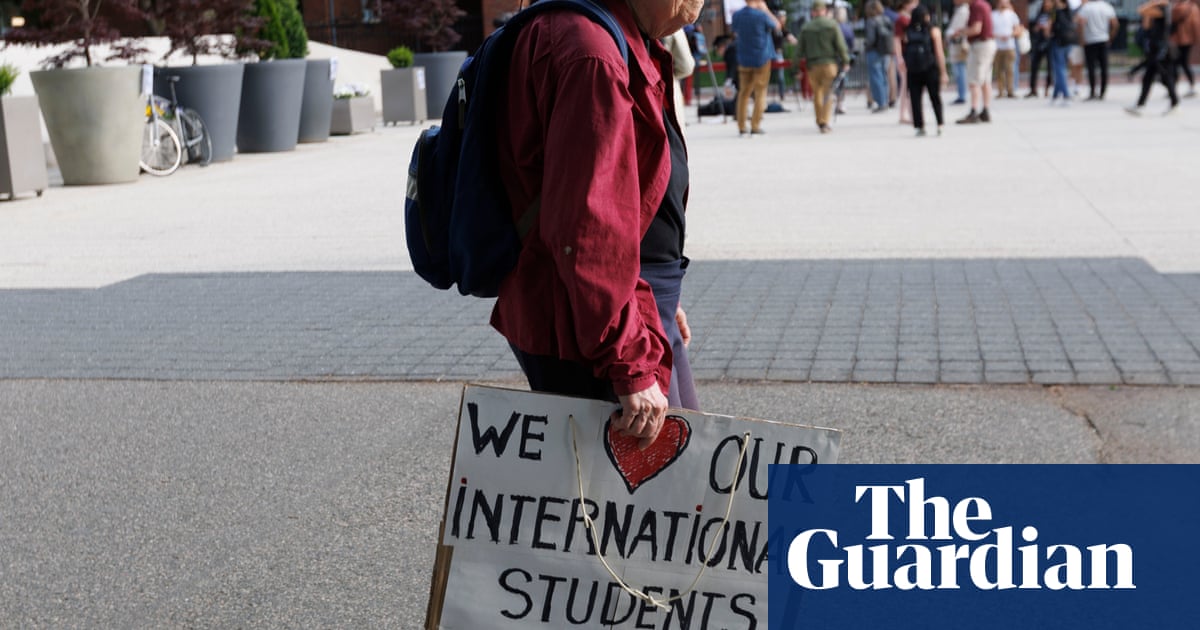TheTrump administrationhas continued its crackdown on American universities by ordering US embassies worldwide to immediately stop scheduling visa interviews for foreign students.
The directive comes as the government prepares to implement comprehensive social media screening for all international applicants and after the president’s assault on Harvard that followed pro-Palestinian campus demonstrations last year.
Trump has repeatedly described top American universities as havens for “Marxist maniacs and lunatics” and on Monday mused that he would redirect their federal funding to trade schools.
Here are the key stories at a glance:
A Tuesday state department cable instructs consular sections to pause adding “any additional student or exchange visitor (F, M, and J) visa appointment capacity until further guidance is issued”.
The directive,first reported by Politicoand now confirmed by the Guardian, could severely delay visa processing and hurt universities – many of whichDonald Trumpaccuses of having far-left ideologies – that rely heavily on foreign students for revenue.
Read the full story
TheTrumpadministration is set to order federal agencies to cancel all government contracts with Harvard University worth an estimated $100m, dramatically escalating the president’s assault against America’s most prestigious university.
Read the full story
The US health secretary,Robert F Kennedy Jr, announced that the federal Centers for Disease Control and Prevention would remove Covid-19 booster shots from its recommended immunization schedule for healthy children and pregnant women.
Read the full story
Donald Trump has warnedVladimir Putinthat he is “playing with fire”, launching a fresh broadside at his Russian counterpart over stalled Ukraine peace efforts.
Read the full story
National Public Radio, the US public broadcaster that provides news and cultural programming to more than 1,000 local stations, has filed a federal lawsuit against the Trumpadministration, challenging an executive order that cuts federal funding to the public broadcaster as an unconstitutional attack on press freedom.
Read the full story
Donald Trump’smedia company said that institutional investors will buy $2.5bn worth of its stock, with the proceeds going to build up abitcoinreserve.
Read the full story
The White House said on Tuesday thatDonald Trumpis set to pardon reality TV stars Julie and Todd Chrisley, the couple famous for Chrisley Knows Best, which followed their tightly knit family and extravagant lifestyle.
Read the full story
Argentina ratified its decision to withdrawfrom the World Health Organization duringRobert F Kennedy’s visit to Buenos Aires.
Trump issued an unconditional pardonto a former Virginia sheriff who wasconvicted on federal fraud and bribery charges.
Trump wants to “dictate” policieslike those of far-right regimes in the 1930s,a leading billionaire investor has warned.
Catching up?Here’s what happened on26 May 2025.
